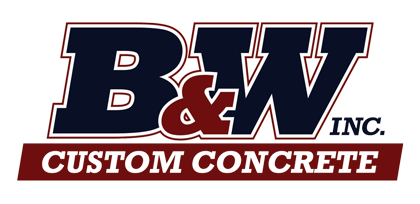Which One is Best for Your Project
Concrete is an investment so it’s wise to learn ways to make it last. One important way is to seal your concrete surface. It’s highly recommended and has several benefits.
Protection
Concrete sealers protect the surface from sun, rain, and all other outdoor elements, along with oil spills and stains from vehicles.
Longer Life
By protecting your outdoor surface, it can last as long as 30 years. Without it, discoloring, cracking, and crumbling will occur.
Durability
Concrete driveways that survive harsh climates will weaken, causing them to crack and scale. Seal it for durability.
Mold Deterrent
Air gets trapped in the concrete during the mixing process making it porous. Moisture then penetrates the concrete which causes mold and mildew. By sealing the surface, mold growth won’t occur.
Color Protection
If you have colored decorative concrete, a sealant will protect against discoloration.
So what types of sealers are out there?
Penetrating Sealers
These sealers work by penetrating and reacting with the fine, hairlike vessels of the concrete. It helps guard against penetration of moisture by allowing the vapors to escape and it also protects against the damaging chemical agents in deicing products.
Penetrating sealers are usually used on exterior concrete surfaces where freeze-thaw damage is likely. Rather than a sheen, its finish is an invisible matte while still protecting the surface.
Acrylics
Acrylics are available in a water-based sealer and solvent forms. They are used on both interior and exterior concrete surfaces. For projects that need a fast dry time, acrylics are the answer as they usually dry to the touch within one hour.
Solvent-based acrylics work better for outdoor use as they generally protect better than water-based products. Acrylic sealers used indoors require frequent coats of wax to prevent wear.
Polyurethanes
Polyurethane is a plastic material that exists in many forms. It forms a thick film that protects your outdoor concrete surface for as many as 15-20 years. It provides protection against scuffs and staining. Like acrylics, polyurethane also comes in four sheens: matte, satin, semi-gross, and high gloss, and is non-yellowing. Most are intolerant of water until cured, so the surface should be completely dry before the sealer is applied.
Epoxies
Epoxies are usually mixed prior to application and are used for high-traffic areas, cement-based overlays, and concrete countertops. They are usually only used indoors as they may turn yellow when exposed to UV rays.
If you have a complex project, call B & W Custom Concrete today. We’ll give you a no-obligation quote.

